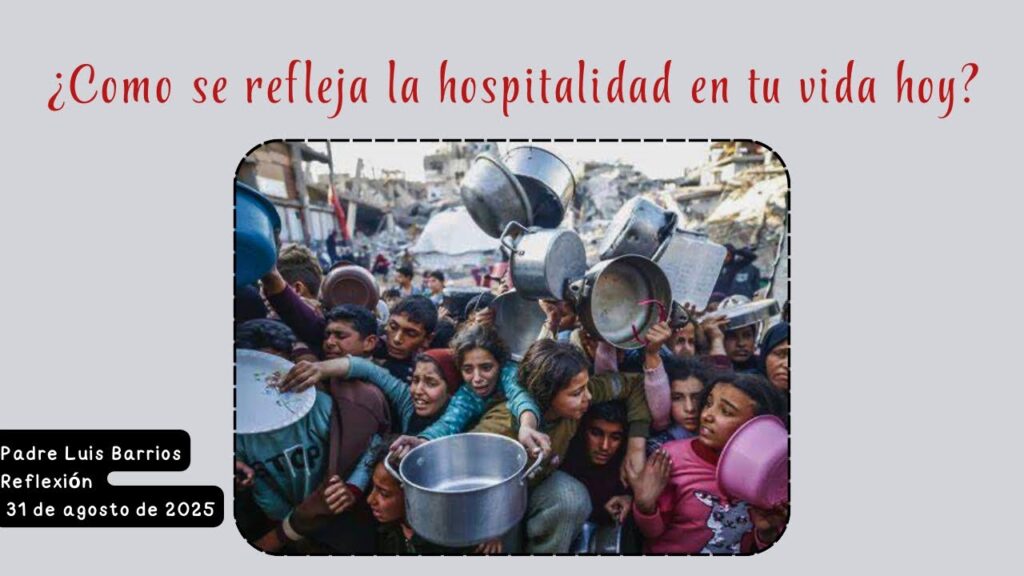Jeremiah 2:4-13; Psalm 81:1, 10-16; Hebrews 13:1-8, 15-16; Luke 14:1, 7-14
Twelfth Sunday after Pentecost Proper 17- August 31, 2025
Luke 14:1, 7-14 is about the importance of humility and selflessness in relationships and hospitality, urging readers to be humble and generous, not seeking recognition or repayment for their actions.
How often do you answer the phone when the caller ID says, “Unknown caller?” I suspect most of us don’t. We want to know who is calling. We don’t want surprises. We want the option, the control, of deciding when and for whom we’ll answer the phone.
When the doorbell rings do you first look to see if you recognize the car in the driveway? Have you ever asked your spouse, “Are you expecting someone?” Have you ever looked out the window or peep hole and then pretended you weren’t there?
Who was the last person you invited to lunch or supper? I’m guessing it was someone you already knew when you invited him or her. We typically invite friends and family, those who are already known to us, those with whom we are comfortable, those who can serve our interests or pleasure, those whose favor we seek, those who will reciprocate or pay us back. In short we welcome those who are already welcome, not those who are unwelcome.
Have you ever received an invitation to a party or dinner at someone’s house and wondered or even tried to find out who would be there? Would they be your kind of people? The kind of people you want to be with? Have you ever accepted or declined an invitation because of who else would or would not be there?
Think about the lessons we teach our children about strangers. “Stranger danger” was what I grew up with and passed on to my children. That doesn’t sound much like Jesus either.
The world’s hospitality is always conditional. The guests are already known, vetted, and welcome. Their names are on our invitation list. Other names are not. We take the initiative. We extend the invitation. And we decide in advance the terms and conditions of the invitation. That’s not, however, hospitality in the kingdom. In the kingdom-community, hospitality is unconditional. We have lost the initiative.
Biblical hospitality, the kind Jesus offered and taught, means welcoming into our house and life the other, the one who is different from us, the stranger. For Jesus, hospitality extends beyond “your friends or your brothers or your relatives or rich neighbors.” It’s about “the poor, the crippled, the lame, the blind,” those who are different from us and have no power, ability, or resources to reciprocate, pay back, take us out to dinner, or serve our interests.
Hospitality does not begin with opening the door of our house. It begins with opening the door of our heart. Hospitality challenges me to face the ways I’ve closed and locked the door of my heart. When we shut the door of our heart and exclude the stranger we also imprison ourselves. Strangers have a way of showing us ourselves and the doors we have closed.
Hospitality isn’t so much about who the other is or isn’t but who I am and how I want to be. Instead of making a guest list of who is welcome maybe we should take an inventory and make a lost of our own fears, prejudices, judgments, skepticisms, cynicisms, and profiling of others. Those are the locks on our heart’s door. What does hospitality look like in your life today?
Jeremiah 2:4-13 is about God’s lament for the Israelites’ unfaithfulness and turning away from Him to worship idols, forsaking the true source of living water for broken cisterns that can hold no water. This verse is a powerful reminder that sometimes we, as God’s people, can stray from Him and turn to things that have no real value or power, just like worthless idols.
The passage from Hebrews 13 presents profound insights into Christian living and community engagement. When we read these verses, they encourage us to embrace mutual love, hospitality, and respect for one another. It emphasizes the importance of love as continuous practice, inviting us to create a warm and welcoming environment around us.
Let’s embrace the lesson from Luke 14:1, 7-14 and embody humility and servanthood in our daily interactions. Let’s strive to prioritize others over ourselves, without seeking acknowledgment or praise. As we navigate our work and family life, let’s practice selfless service, mirroring the love and humility Jesus demonstrated. Will you rise to the challenge and live out this profound teaching in your own life? Amen & Ashe.
